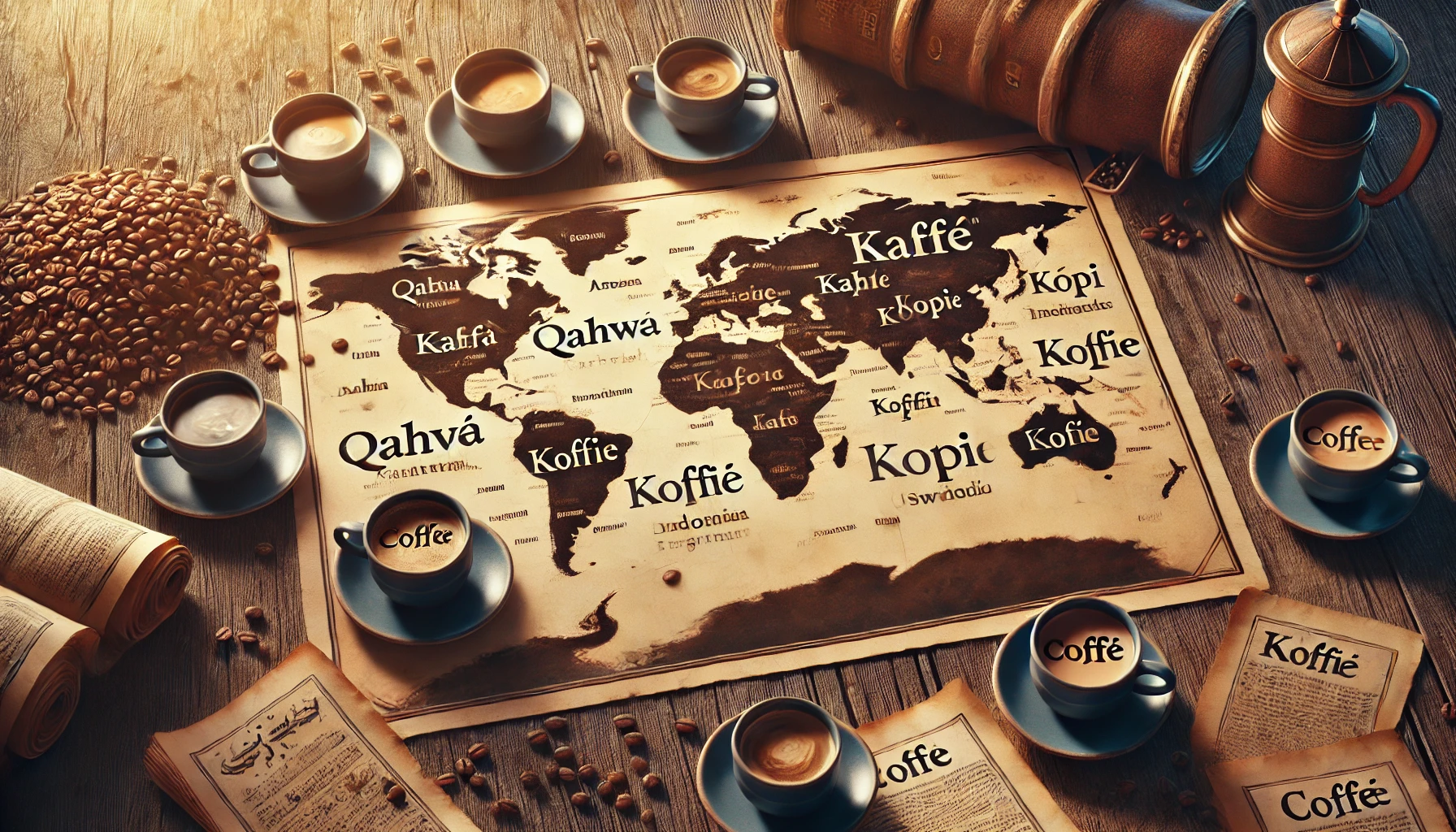Coffee is one of the most universally recognized words across languages—but where did the word “coffee” actually come from? Just like the drink itself, the word has traveled a long, fascinating road through history, language, and culture, evolving as it spread from region to region.
In this article, we’ll explore the origin of the word “coffee,” how it changed across different languages, and what this linguistic journey tells us about the global spread of coffee culture.
The Root of It All: From Ethiopia to Arabia
Coffee is believed to have originated in Ethiopia, where legend says a goatherd named Kaldi discovered the energizing effects of the coffee cherry after noticing his goats acting unusually lively.
From there, coffee was cultivated and traded across the Arabian Peninsula, particularly in Yemen, where it was first brewed as a beverage in the form we recognize today.
The Arabic word for coffee is:
قَهْوَة (qahwa)
Originally, qahwa referred to wine or a drink that had stimulating properties. Over time, the term came to refer specifically to the dark, bitter, energizing drink made from roasted coffee beans.
The Journey into Turkish and Persian
As coffee spread through the Ottoman Empire, it entered the Turkish language as:
kahve
This is a direct borrowing from the Arabic qahwa. The change from “q” to “k” is common when Arabic words are adopted into Turkish, which has different phonetic structures.
The Turkish word kahve still means coffee today and was the form that traveled further west into Europe.
Into Europe: The Birth of the Word “Coffee”
As the drink spread through Europe in the 16th and 17th centuries, different languages adopted their own versions of the word, all derived from the Ottoman Turkish kahve, and ultimately from Arabic qahwa.
Here are some examples:
- Italian: caffè
- French: café
- Spanish: café
- German: Kaffee
- Dutch: koffie
- English: coffee
The Dutch word “koffie” is the most direct ancestor of the English “coffee,” as the Dutch were heavily involved in coffee trade during the colonial era, particularly in Southeast Asia.
The Role of Colonialism and Trade
Language follows trade routes—and coffee was one of the most sought-after commodities of the colonial period. As European powers like the Dutch, French, and British established trading networks in Africa, the Middle East, and Southeast Asia, the word for coffee traveled with the product.
In many cases, local languages adopted forms similar to the colonial languages:
- Swahili (East Africa): kahawa (from Arabic qahwa)
- Tagalog (Philippines): kape (from Spanish café)
- Indonesian: kopi (from Dutch koffie)
This linguistic exchange is evidence of how deeply coffee is tied to global history, movement, and influence.
Pronunciation Differences
Even with similar spellings, pronunciation of the word varies significantly:
- English: /ˈkɔː.fi/
- French: /ka.fe/
- German: /ˈka.feː/
- Arabic: /ˈqah.wa/
- Japanese: コーヒー (kōhī)
- Mandarin Chinese: 咖啡 (kāfēi)
Some languages, especially in East Asia, adapted the word phonetically based on Western loanwords and their own writing systems.
The Word Today: Global and Familiar
Today, the word “coffee” and its variations are nearly universal. You can travel almost anywhere in the world, and a version of the word will be understood—making it one of the most globally recognized food and beverage terms.
Whether it’s café, caffè, kahve, kape, or coffee, the word carries with it:
- A shared history of trade, migration, and cultural exchange
- A common ritual practiced in countless homes and cafés
- A reminder that something as simple as a drink can connect people across continents and centuries
Final Thoughts: More Than a Word
The word “coffee” is more than a label for a drink—it’s a linguistic fossil, carrying centuries of human history within its syllables. Its evolution mirrors the journey of the beverage itself: from ancient Ethiopia to bustling Turkish bazaars, from Venetian cafés to modern-day city streets.
So the next time you order your daily cup, take a moment to appreciate not just the flavor—but the global story behind the word you use to ask for it.
